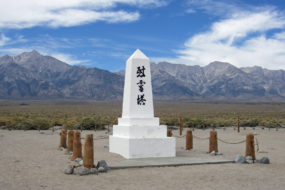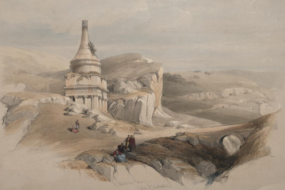May 23, 2015 • Life for Leaders
These are the generations of the heavens and the earth when they were created.”
Genesis 2:4
Genesis 2:3 completes the first creation account in the Bible, with a picture of God at rest. Genesis 2:4 begins the second creation account, which narrates the creation of the world in a way that is both like and unlike the first account. In both tellings of the creation, God is the sovereign Lord who creates all things according to his will. Both Genesis 1 and Genesis 2 emphasize the centrality of human beings in creation and their unique role in the stewardship of what God has made.
Yet there are many differences between Genesis 1 and 2, not only differences of emphasis, but also differences of the order of creation. If we read both accounts as literal descriptions of natural history, they seem to be inconsistent (though, as you might expect, many have sought to reconcile them). The differences between the two creation accounts have inspired those who demean biblical authority, while often distressing Christians who confess that Scripture is both fully true and fully inspired by God.
In this short devotion, I can’t begin to address the issues raised by the differences between Genesis 1 and Genesis 2. I can, however, let you know “where I’m coming from” as I walk through Genesis 2 with you.
I do believe that the Bible is fully and uniquely God’s written Word, inspired by God in every part. Thus, I believe that Genesis 1 and Genesis 2 are both true and have much to teach us as the Word of God.
I also believe that we need to read the accounts in these chapters as stories, stories that are profoundly true, though not necessarily true in the way in which natural science is true. Let me explain what I mean with an example. On Ash Wednesday, I have often said to people in worship services, “You are from the dust.” I believe this is true, though not in the most literal or historical way. In fact, the people to whom I have spoken came literally from their mother and father, not from actual dust, but from human cells. Nevertheless, it is also true that they are “from the dust” in the sense that all human beings ultimately come from the earth (see Gen 2:4-7).
I receive both creation accounts in Genesis as inspired by God and filled with divine truth. I believe that we will hear what God has to say to us through these accounts when we pay close attention to the stories, to their words, themes, emphases, characters, surprises, and plots. I have sought to do this faithfully in my exposition of Genesis 1. I will try to do it again as we work through Genesis 2. This chapter contains essential elements of the broader story of God.
I invite you to join me as we hear together the story of creation as told from the distinctive perspective of Genesis 2:4-25. This perspective will build upon and enrich what we have already learned from Genesis 1, helping us to know God and ourselves better, so that we might live out our calling with greater faithfulness.
QUESTIONS TO CONSIDER:
If you have time, read Genesis 2:4-25. What stands out to you in this account of creation? What questions do you have? What insights occur to you? How might this portion of Scripture inform how you live today?
PRAYER:
Gracious God, thank you for all you have revealed to us in Scripture, including the truths of creation found in Genesis 1 and 2. Thank you for embedding these truths in stories that engage us, enlighten us, perplex us, and inspire us. Help us, dear Lord, as we walk through Genesis 2 together, to hear not just the story of the text, but your voice as you speak to us. Amen.

Dr. Mark D. Roberts is a Senior Strategist for Fuller’s Max De Pree Center for Leadership, where he focuses on the spiritual development and thriving of leaders. He is the principal writer of the daily devotional, Life for Leaders, and the founder of the De Pree Center’s Flourishing in the Third Third of Life Initiative. Previously, Mark was the Executive Director of the De Pree Center, the lead pastor of a church in Southern California, and the Senior Director of Laity Lodge in Texas. He has written eight books, dozens of articles, and over 2,500 devotions that help people discover the difference God makes in their daily life and leadership. With a Ph.D. in New Testament from Harvard, Mark teaches at Fuller Seminary, most recently in his D.Min. cohort on “Faith, Work, Economics, and Vocation.” Mark is married to Linda, a marriage and family counselor, spiritual director, and executive coach. Their two grown children are educators on the high school and college level.




